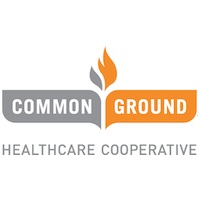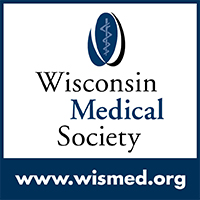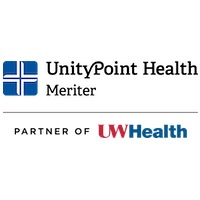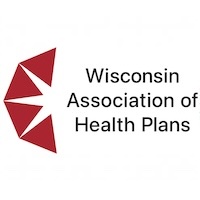
$5M NIH grant to launch statewide study of the brain in people with epilepsy
The Medical College of Wisconsin (MCW) and the University of Wisconsin-Madison received a four-year, $5 million grant from the National Institutes of Health’s (NIH) National Institute of Neurological Disorders and Stroke to study brain networks in people with epilepsy. This clinical study, called the Epilepsy Connectome Project, will use state-of-the-art non-invasive brain imaging methods to understand how communication between brain areas changes as a result of epilepsy, and how these changes contribute to seizure recurrence and other health problems associated with epilepsy.
Jeffrey Binder, MD, professor of neurology and biophysics at MCW, and Elizabeth Meyerand, PhD, professor and chair, department of biomedical engineering at UW-Madison, are the principal investigators on the project, which also involves 14 other key team members from both institutions. Teams at Froedtert Hospital, Aurora Health Care and Marshfield Clinic are also involved.
The term “connectome” refers to the complex network of fiber connections that link brain regions, and the relative strength of these connections. Beginning in January of 2016, the Epilepsy Connectome Project will be the first effort to describe these complex networks in a large group of individuals with a well-defined neurological condition. Researchers will collect detailed connectome measurements in 200 adults with temporal-lobe epilepsy from across the state of Wisconsin. These results will be compared against healthy control data from the NIH’s Human Connectome Project to determine whether systematic changes occur in people with epilepsy. Variations in the connectome will be examined to determine relationships with clinical outcomes such as frequency of seizures, responsiveness to seizure medication, and changes in cognitive abilities.
“Through this collaboration, we are hopeful that our findings from the Epilepsy Connectome Project will lead to new tools allowing optimal diagnosis and individualized treatment for people with epilepsy,” said Dr. Binder. “The expertise at MCW and UW-Madison in physics and functional MRI technologies, as well as in functional connectivity studies, make this collaborative group an ideal one to conduct this study.”
According to the Centers for Disease Control and Prevention, when counting both children and adults, about 2.9 million people in the United States have active epilepsy. The study will focus on temporal-lobe epilepsy, the most common form of epilepsy in adults.
In 2009, the NIH launched a large-scale effort, called the Human Connectome Project, to measure connectomes in a large set of healthy people and detect variations that relate to individual differences in brain function and ability. The size and strength of the connections can be measured with advanced MRI methods such as diffusion tensor imaging (DTI) and functional MRI (fMRI), as well as with magnetoencephalography (MEG), a technique that measures tiny magnetic fields produced by brain activity. The resulting set of connection measurements constitutes a detailed map of the brain’s functional networks.
“Cutting-edge imaging technology and methods will allow us to generate a much more comprehensive picture of brain changes due to epilepsy than has ever before been possible,’’ said Dr. Meyerand, who also holds a faculty appointment in medical physics. “We are excited at the prospect that this close collaboration between two stellar Wisconsin institutions will yield impactful advances in patient care.”
Study participants, adults between the ages of 18 and 60 years old, will be studied in an outpatient setting where they will undergo MRI and MEG imaging and participate in mental ability tests.
About the Medical College of Wisconsin
The Medical College of Wisconsin is the state’s only private medical school and health sciences graduate school. Founded in 1893, it is dedicated to leadership and excellence in education, patient care, research and community engagement. More than 1,200 students are enrolled in MCW’s medical school and graduate school programs in Milwaukee, and 26 medical students are enrolled at MCW-Green Bay. A regional medical education campus is scheduled to open in Central Wisconsin in 2016. MCW’s School of Pharmacy will open in 2017 or 2018 with an initial class size of 60 students. A major national research center, MCW is the largest research institution in the Milwaukee metro area and second largest in Wisconsin. In FY 2013-14, faculty received approximately $154 million in external support for research, teaching, training and related purposes, of which approximately $138 million is for research. This total includes highly competitive research and training awards from the National Institutes of Health (NIH). Annually, MCW faculty direct or collaborate on more than 2,000 research studies, including clinical trials. Additionally, more than 1,350 physicians provide care in virtually every specialty of medicine for more than 425,000 patients annually.
About University of Wisconsin – Madison
The School of Medicine and Public Health (SMPH) at the University of Wisconsin-Madison is recognized as an international, national and statewide leader in education, research and service. The SMPH is home to approximately 1,500 faculty in 10 basic science and 17 clinical departments, 650 medical students and 662 doctoral students enrolled in basic and applied science programs. In 2013, SMPH accounted for roughly one third of the university’s $1.1 billion research expenditures. It is part of the UW Health academic health system, which includes six hospitals and 80 outpatient clinics. UW Health’s 1,400 physicians and 16,500 employees take care of 600,000 patients each year.
The University of Wisconsin-Madison College of Engineering is among the most innovative and consistently highly ranked U.S. colleges of engineering. Home to more than 40 research centers and more than 15 research consortia, the College is internationally renowned for leading-edge research and widely recognized for its ability to transfer technological advances into real-world applications through patents, licenses, spin-off and start-up companies, and industry partnerships. Through world-class undergraduate, graduate- and professional-level educational programs, the College enables students to develop as thoughtful, ethical leaders and to acquire the technical expertise they need to tackle complex global engineering challenges.








.jpg?bwg=1612548324)






















